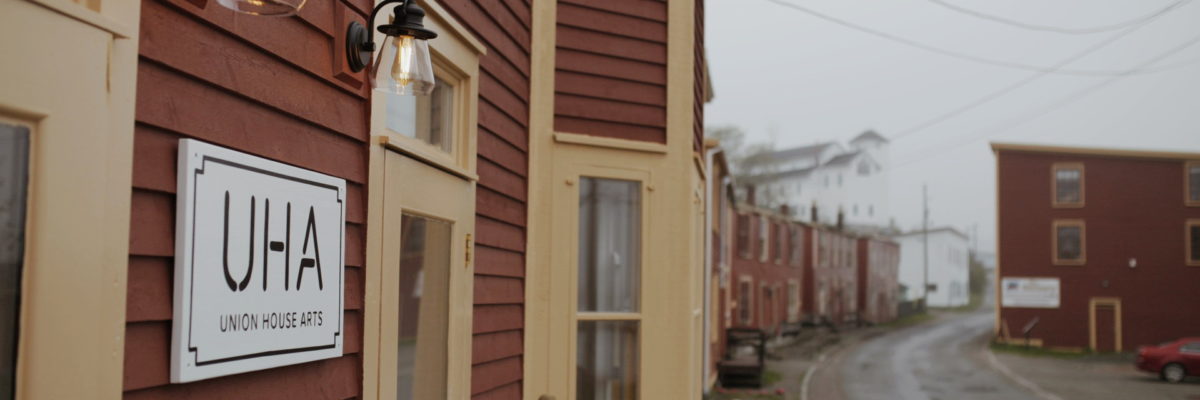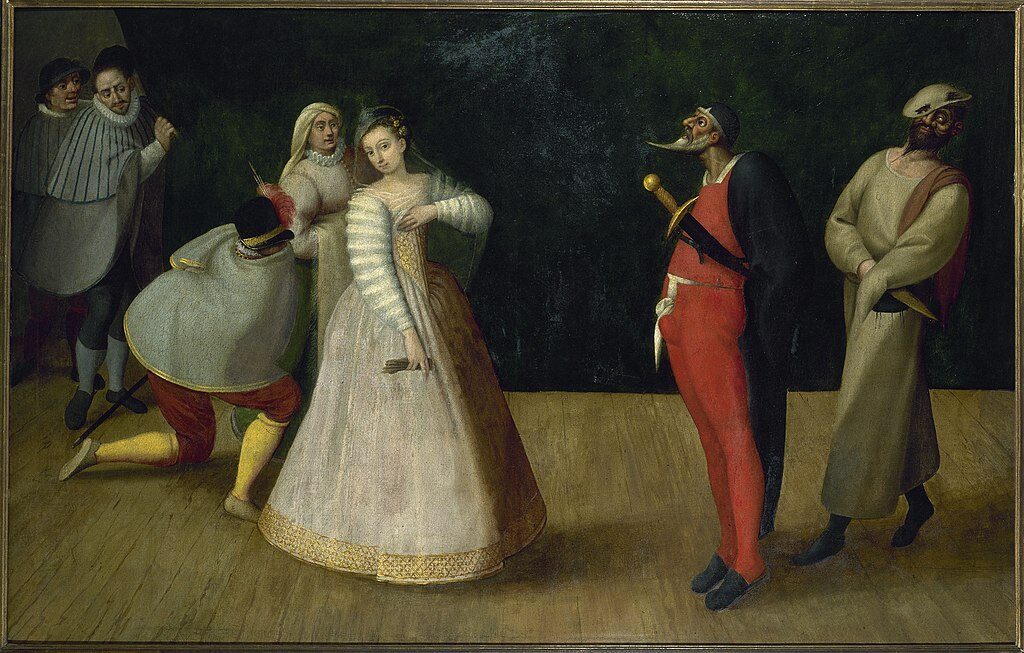Union House Arts Opens in Port Union
July 2019
Saturday, June 22, saw the Grand Opening of Union House Arts, a community art space in Port Union established under the Sir William F Coaker Heritage Foundation. The building is as versatile as the programs this new art space offers; with a gallery, learning space, community kitchen, two artist apartments, and two artist studios sitting comfortably in one renovated FPU duplex – the red workers’ houses that line the waterfront in Port Union beside the factory. The space will offer artist residencies, exhibitions, workshops, skill-sharing programs, and other pop-up events.
Union House Arts intends to create a space where the local community and arts professionals can create and learn from each other. This mandate has been seen in the space’s first weeks of operations, with weekly Maker’s Nights – drop-in events where the community can gather and work – and workshops such as Corner Brook artist Emily Critch’s Flora Papermaking workshop.
Committee Chair Jane Walker said programming at UHA will focus on “the context of place and how those conversations might fit into and expand upon local narratives.” The mission statement on the UHA website also makes note of a commitment to programming that will be accessible to “all educations and experiences.” This mandate intends to cater to the context of Port Union, rather than attempting to impose external art trends.
Walker is also the curator of the opening exhibition, Labour Laws, which considers how communities are built through different kinds of work, and features pieces by Emily Critch, Emily Hayes, Michelle MacKinnon, Lucas Morneau, and Ethan Murphy.
Morneau’s performance piece, part of a body of work called The Queer Mummer, opened the exhibition on the Saturday night. The piece combined aspects of mummering tradition with contemporary Drag Queen performance, and featured a full crocheted mummer-meets-Drag-Queen costume in fishing net green and wool sweater grey.
Walker said she was interested in including Morneau’s piece because of the crossover of the traditional and the contemporary. “In my experience observing contemporary art in rural contexts, having that entry point, like the crochet, is an important start to local conversations.” Indeed, there was much talk following the performance about the crochet techniques, which fostered further conversations about the contemporary drag elements.
Critch’s work, Pearly Everlasting, includes handmade paper of pressed flowers from the artist’s grandmother’s hometown in New-Wes-Valley, alongside photographs taken in the area of liminal structures and environments. Critch said that being an artist in Newfoundland comes with outside expectations of performativity, and organizations like Union House Arts, which foster local work, are important, particularly when so many institutions in the province don’t provide that space. “The most frustrating thing about being an artist in Newfoundland,” Critch said, “is having people outside the province place restrictions on what it means to be a Newfoundlander.”
The Bonavista peninsula has been a notable region of tourist development in recent years, and Walker notes that revitalization needs to be based in strong communities. “Rural revitalization relies on strong communities, leaders, and creative approaches to problem solving,” Walker said. “Through our projects at UHA we want to prove how the arts can make us collectively stronger – culturally, economically, and also on a deeply personal level.”
Labour Laws runs until August 9. The residency program will host nine artists this year, and the space will remain open year-round. For more information please see https://unionhousearts.ca/
Heather Nolan is a writer and musician from St John’s. Her poetry, prose and articles have been published in the US, Wales, and Canada. She was awarded the Gregory J Power Poetry Award in 2019, and was longlisted for the CBC Poetry Prize in 2017. She is the author of This Is Agatha Falling (Pedlar Press, 2019).




